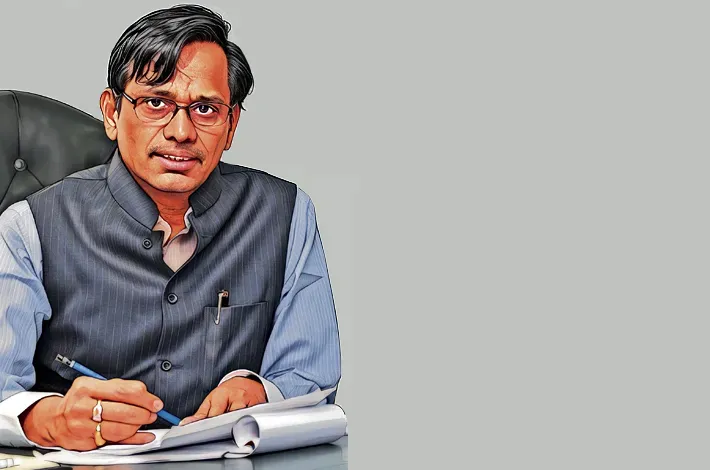A ROADMAP FOR MEN | ‘LET’S STOP THINKING THERE IS A MASCULINE NATURE THAT JUSTIFIES OUR BEHAVIOUR’
20-12-2024 02:01:18 AM

How an ordinary woman shook attitudes to rape
I think most people in long-term relationships with men think of their partner as someone trustworthy. But now there's this sense of identification [with Gisèle Pelicot] for a lot of women. Like, 'okay, so that can happen to me. Elsa Labouret, French activist.
All men, without exception, benefit from a system that dominates women Public letter by prominent French men
Agencies
The Gisèle Pelicot case has had a significant impact on French society, sparking a national conversation about sexual violence and drug-facilitated assault. Pelicot's courage in speaking out and the severity of the crimes committed against her have led to increased awareness of these issues and a renewed focus on supporting victims.
As France digests the implications of its largest rape trial, which is due to end this week, it's clear that many French women – and not just those at the courthouse in Avignon – are pondering two fundamental questions.
The first question is visceral. What might it say about French men – some would say all men – that 50 of them, in one small, rural neighbourhood, were apparently willing to accept a casual invitation to have sex with an unknown woman as she lay, unconscious, in a stranger's bedroom?
The second question emerges from the first: how far will this trial go in helping to tackle an epidemic of sexual violence and of drug-facilitated rape, and in challenging deeply held prejudices and ignorance about shame and consent?
Put simply, will Gisèle Pelicot's courageous stand and her determination – as she has put it, to make "shame swap sides" from the victim to the rapist – change anything?
Elsa Labouret, who works for a French activist group, Dare to be Feminist says, "I think most people in long-term relationships with men think of their partner as someone trustworthy. But now there's this sense of identification [with Gisèle Pelicot] for a lot of women. Like, 'okay, so that can happen to me'.
"These are not criminal masterminds," she continues. "They just went on the internet... So, it is possible similar things are happening everywhere." It's a view widely held, but also widely contested in France. France's Institute of Public Policies released figures in 2024 showing that on average, 86% of complaints of sexual abuse and 94% of rapes were either not prosecuted or never came to a trial, in the period between 2012 and 2021.
Labouret argues that sexual violence happens when certain men know that they "can get away with it. And I think that's a big reason why it's so rampant in France".
Ordinary men, not monsters
A court-appointed psychiatrist Laurent Layet testified that the accused were neither "monsters" nor "ordinary men". Some wept. A few confessed. But most offered an array of excuses, with many saying they were simply "libertines" – as the French put it – indulging a couple's fantasies, and that they had no way of knowing Gisele Pelicot had not consented. Others claimed Dominique Pelicot, her ex-husband, had intimidated them.
There are very few clear patterns or shared characteristics among the 51 men on trial. They represent a wide spectrum in society: three-quarters have children. Half are married or in a relationship. Just over a quarter of them said they had been abused or raped as children. There is no discernible grouping by age or job or social class. The two traits they all share are that they're male, and that they made contact on an illicit online chat forum called Coco, known for catering to swingers, as well as attracting paedophiles and drug dealers. According to French prosecutors, the site, which was shut down earlier this year. Juliette Campion, a French journalist said, "A lot of men don't know what consent actually is, so [the case] says a lot about our country, sadly."
Will the case change attitudes
The Pelicot case is certainly helping to shape the contours of attitudes to rape across France. On 21 September, a group of prominent French men, including actors, singers, musicians and journalists, wrote a public letter that was published in Liberation newspaper, arguing that the Pelicot case proved that male violence "is not a matter of monsters". "It is a matter of men, of Mr Everyman," the letter said. "All men, without exception, benefit from a system that dominates women."
It also sketched out a "road map" for men seeking to challenge the patriarchy, with advice such as "let's stop thinking there is a masculine nature that justifies our behaviour".
Some experts believe the huge public interest in the Pelicot case could already be producing benefits.
Karen Noblinski, a Paris-based lawyer specialising in sexual assault cases says, "It has raised awareness in young people. Rape doesn't always happen in a bar, in a club. It can happen in our home."
Elsa Labouret believes French attitudes still need challenging. "I think a lot of people still think that sexual violence is sexy or romantic or something that is part of the way that we do things here [in France]," she argues."And it's so important that we question that and that we don't accept this kind of argument at all."








